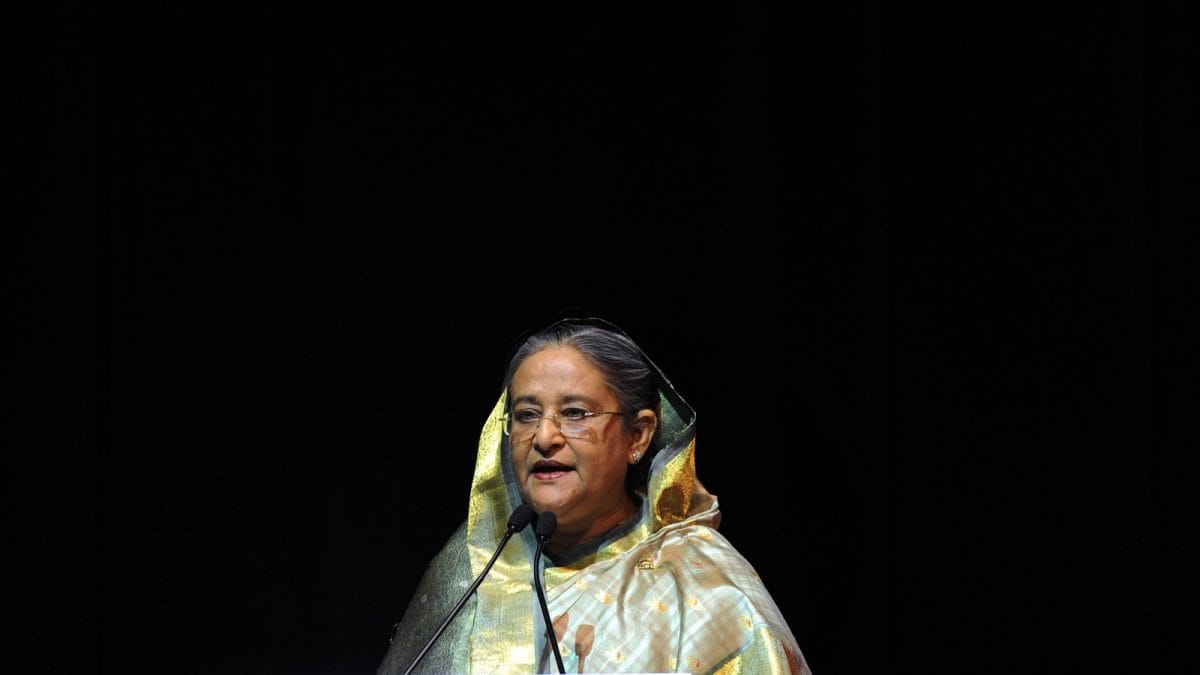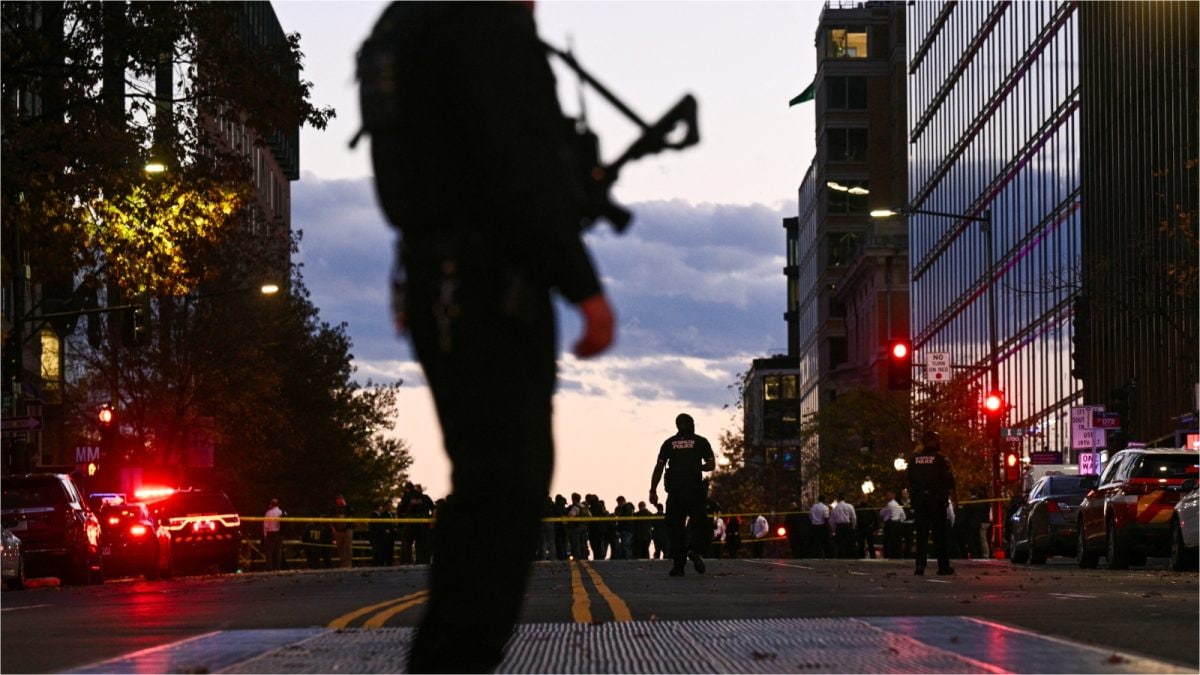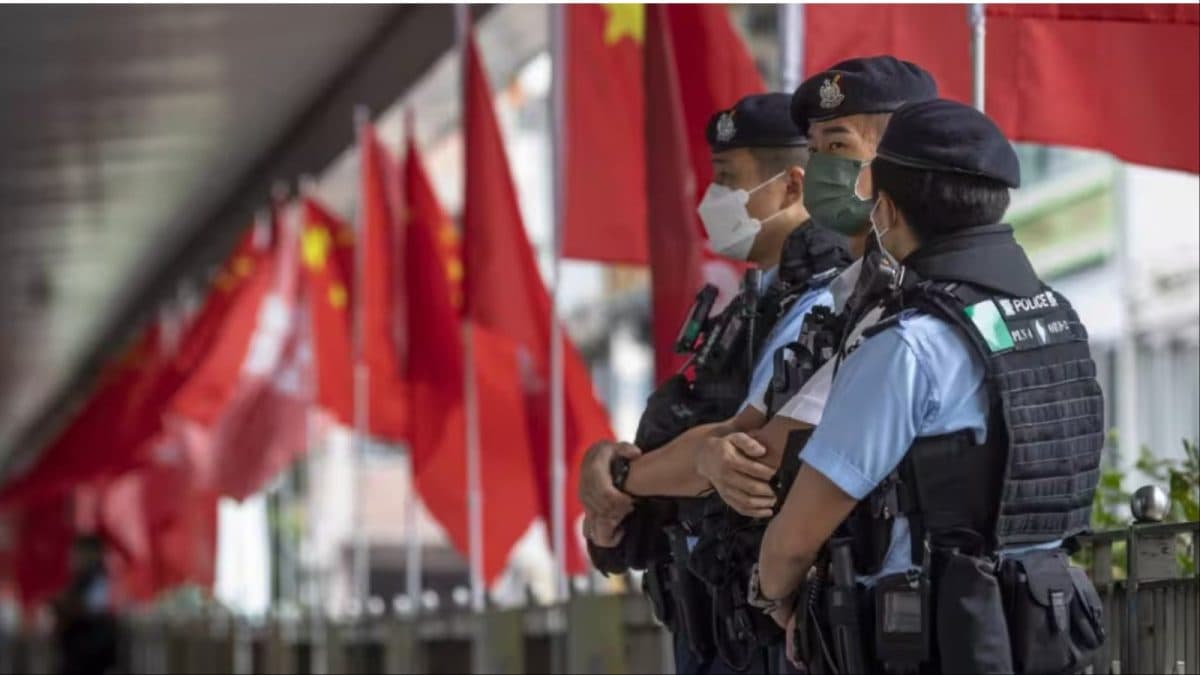Asim Munir might have the entire Pakistani army under his command, but nothing scares him more than Imran Khan. Munir engineered a regime change and put Imran behind bars, but the cricketer-turned-politician's aura has only grown. This is why one Pathan scares Pakistan's Punjabi-led hybrid regime.

Asim Munir (right) was removed as the chief of Pakistani spy agency ISI in 2019 when Imran Khan was the prime minister. (File)
It is widely known that the rift between former Pakistan Prime Minister Imran Khan and Army Chief Asim Munir is deeply personal. Yes, the feud involving Khan's mystical wife, Bushra Bibi, has created bad blood with Munir, Pakistan's de facto ruler. But that aside, the personal animosity lies in something more combustible, which could make things tough for Munir at this critical juncture when Pathans, marginalised, resentful, and unwilling to bow to Punjabi domination, have vocally taken on Pakistan's ethnic power bloc—the Punjabis, dominant and accustomed to holding the country's wealth, authority, and institutions.
Army Chief Asim Munir might have quietly crowned himself the de facto supreme authority in Pakistan, but the regime operating under his command seemed terrified to stay silent for more than a day about the whereabouts or wellbeing of the imprisoned former Prime Minister. Imran Khan hadn't been heard of in four weeks. And, after an Afghan outlet claimed he might be dead, thousands on Thursday gathered outside Rawalpindi's Adiala Jail. But jail authorities or Punjab's top police officials, for long, had no answers for them on why they defied the court's order of weekly meetings. Access to Imran Khan had been cut off, leaving his family, party leaders, and lawyers with no information about him.
The last time rumours of Khan's death spread, the government rushed to issue a clarification. Why did Islamabad stay silent for this long?
"Asim Munir's fear of Imran Khan is so deep that he resorts to abduction, torture, and jailing anyone who dares to stand with Imran Khan. A powerless, insecure dictator masquerading as a general cannot silence a nation awakened by truth," said his party, Pakistan Tehreek-e-Insaaf (PTI), from one of its verified handles on November 20 — the 17th day of Imran Khan being detained with access to no acquaintance.
Does the Pathan politician terrify the Punjabi Field Marshal? Does Khan's moral authority, his victimhood, supporters, resistance and community, threaten the legitimacy Munir is trying to hold over a state built on coercion?
MUNIR'S POWER AND FEARS OF PATHAN RESENTMENT
Yes, the dispute between Munir and Khan is personal. Munir was ousted as ISI chief by Khan in 2019 over alleged corruption probes into Bushra Bibi. The ISI chief is Pakistan's second most powerful military post after that of the army chief. The dispute is also institutional, with the army viewing Imran Khan and his party's popularity as a threat to its grip.
But Munir might be dreading something deeper. The simmering Pathan resentment against Punjabi hegemony.
Pathans, or Pashtuns, have long felt sidelined in Pakistan's power structure, where Punjabis dominate the military, bureaucracy, and economy. From historical rifts of the 1970s Pashtun nationalist movements for autonomy, to violent clashes in the 1980s over resource allocation in Khyber Pakhtunkhwa (KP), and ongoing grievances in Balochistan, where Pashtuns ally with Baloch against Punjabi exploitation, instances of friction are plenty
Punjab's control over federal funds has left Pathan-dominated KP underdeveloped. It has fuelled accusations of ethnic bias. This resentment spills across borders, with Pashtun solidarity between Pakistan and Afghanistan unbreakable. Millions of Afghan refugees, mostly Pashtun, have sheltered in Pakistan since the 1980s Soviet invasion. Recently, tensions flared after Pakistan's airstrikes on Kabul and eastern Afghanistan, which killed civilians, including 10 in Khost and Paktika just days ago. This, along with the sending of millions of Afghans back to Afghanistan in the biting cold, has sparked outrage among the community. Kabul has accused Islamabad of aggression, while Pashtuns on both sides have decried it as Punjabi-led oppression. This has boosted anti-establishment fervour in Pakistan's certain pockets.
"The latest official rhetoric from the military establishment paints Pashtuns, Afghans, and the people of Khyber Pakhtunkhwa (KP) as the problem, conveniently linking them with Talibanisation and internal insecurity," Pakistani politician and lawyer, Barrister Shahzad Akbar, wrote in his October column in GlobalVillageSpace, a diaspora news portal.
"The country's most powerful man is recasting a domestic political crisis as an ethnic and security one, dividing Pakistanis to justify further militarisation of national life," he added.
WHY MUNIR WANTS IMRAN KHAN TO LANGUISH IN JAIL
As thousands of supporters of Imran Khan camped outside Adiala Jail to meet him, a severe and chaotic state crackdown unfolded. It was obvious who was behind it. It came at a key moment for Asim Munir, who rose to near-untouchable status after the 27th Constitutional Amendment earlier in November. By amending Article 243, it effectively crowned him Chief of Defence Forces with lifetime immunity, command over the army, navy, and air force, and new curbs on the Supreme Court. This cemented Munir's military supremacy amid economic troubles and threats from the TTP, which is believed to enjoy support among some Pathans. That is why Munir is treading cautiously.
Imran Khan, now jailed for over 840 days since August 2023 on graft charges, embodies, for many, a kind of Pathan defiance. Releasing him risks mass unrest, especially in KP, the only province where the PTI still holds power despite fears for their lives and ongoing crackdowns.
"Reports surface of Imran Khan's killing. If true, the Pashtoon belt could see a chain reaction. Blood feud looms. His martyrdom would ignite fury from Khyber to Kandahar. Pakistan Army's Asim Munir can't contain that. And if Imran is alive, this increases pressure for his well-being," Delhi-based journalist Ninad Sheth wrote on X.
Khan's Pashtun roots amplify his appeal among a community long weary of marginalisation. Khan has become, for Munir, the bone stuck in the throat. He also has substantial support from his community behind him. One wrong move now, and it could unravel Munir's iron-fisted rule.
- Ends
Published By:
Sushim Mukul
Published On:
Nov 27, 2025
Tune In

 1 hour ago
1 hour ago



















